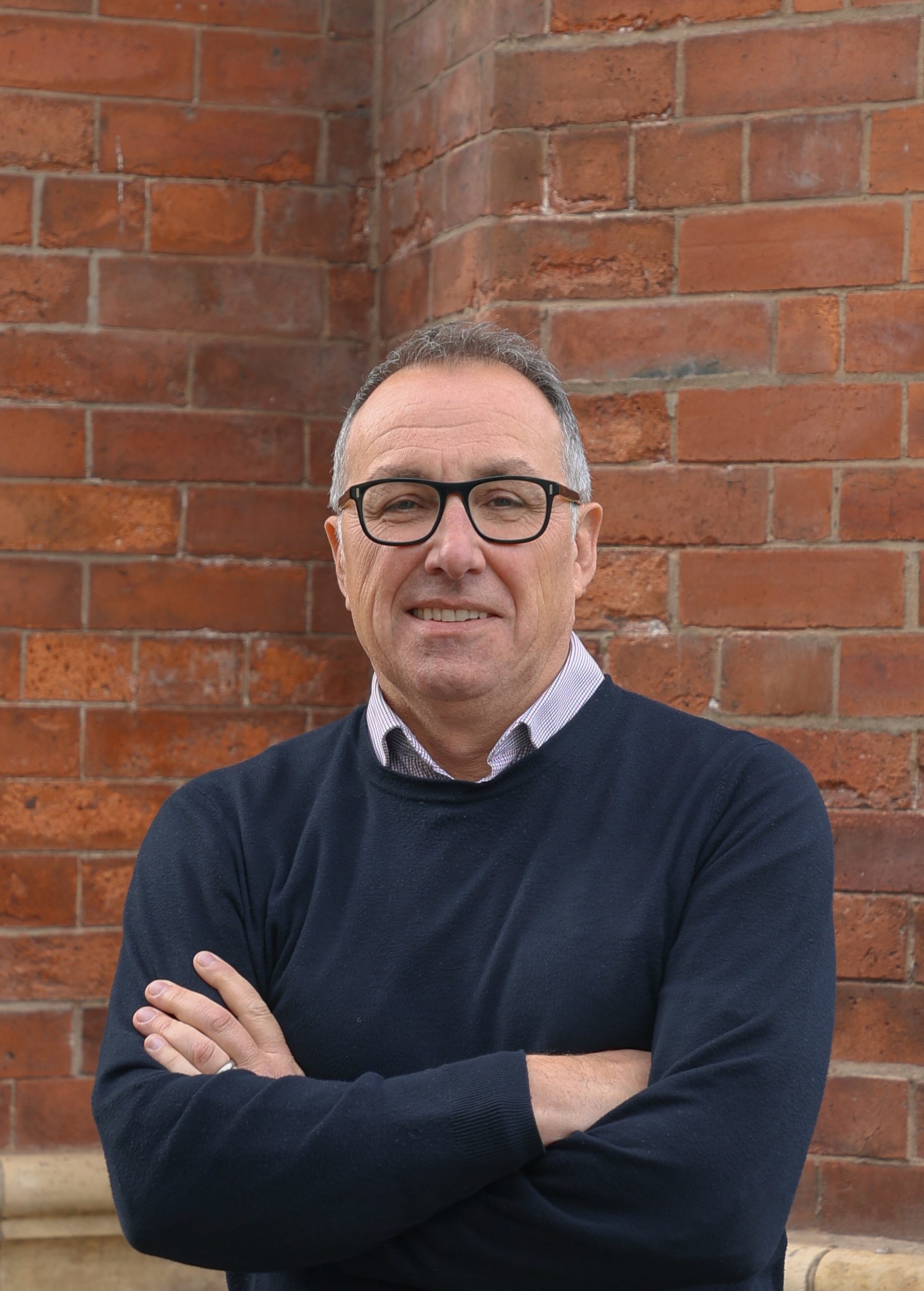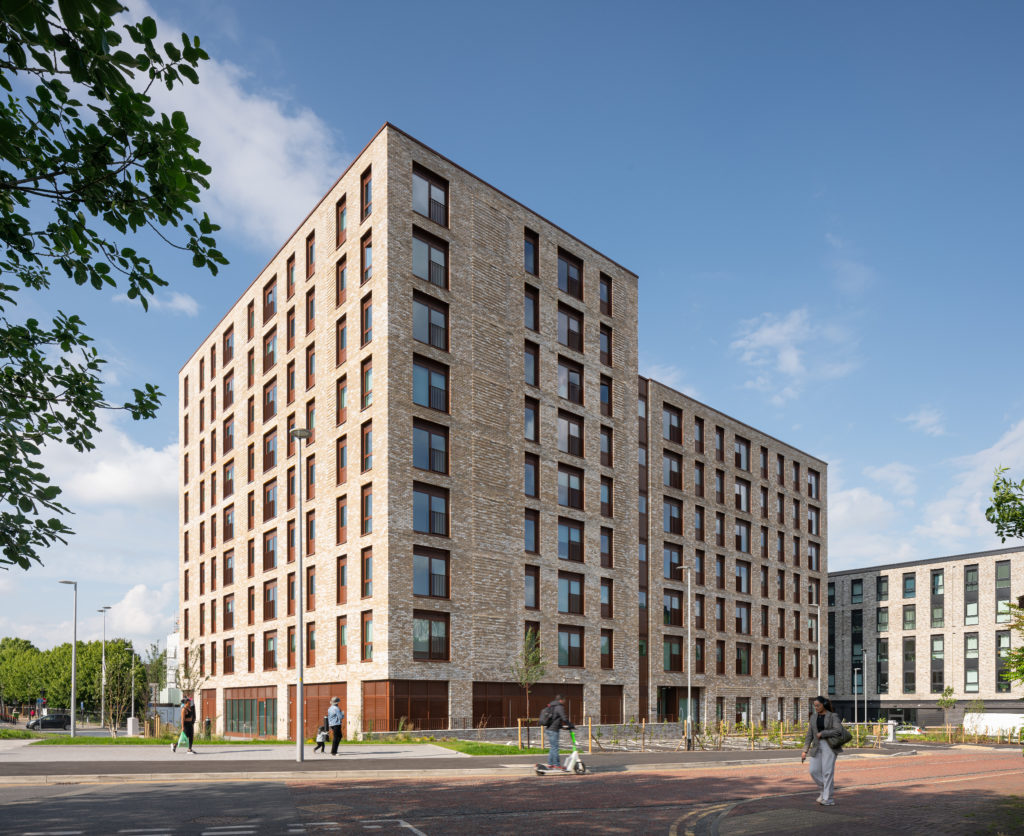Delivering affordable and sustainable homes
12.08.24 5 min read

As Director of Project Management Steve is a relatively new recruit to Muse having been in position for nine months. With a background in construction and development, he’s also overseeing the final phases of Northshore in Stockton-on-tees and Forge Island in Rotherham.
Steve shares his experience of how Muse is delivering affordable and sustainable homes and what it takes to create great places where people want to live, not just now but for future generations, often in challenging locations.
Having worked for a number of construction companies and housebuilders across the residential sectors, what has struck me about Muse is that we’re one of very few organisations who are genuinely able to work with partners for the long term to create places and communities.
That means that we are less focused on overall numbers and put more emphasis on creating places and environments that people are proud to live in. It also means that we’re able to work with a variety of partners, including housing associations and local authorities, in the knowledge that we are all aligned with the same objectives.
Northshore in Stockton-on-Tees is a great example of this as it enters the seventh phase of construction. Northshore is a 56-acre former industrial site that, thanks to a fantastic partnership with Homes England, Stockton Borough Council and the Thirteen Group, we have been able to regenerate into a thriving community that now connects Stockton’s waterfront with the town centre.
Across the six previous initial phases we have delivered commercial workspace, a hotel and most importantly 208 family homes within Northshore’s ‘Homezone’ across a mix of tenures including affordable rent, shared ownership and market sale. The Homezone has become such a popular place to live, we’re now seeing residents move into their second and even third generation of homes at Northshore as their families have grown.
That is a great example of successful placemaking and really emphasises the approach that Muse takes to deliver truly sustainable housing.
From my experience and what I’ve learned at Muse, the key to making this work is based on the following principles.
The first is having a long-term vision. Placemaking doesn’t happen overnight and is more about being a catalyst for change and creating momentum. Working with a long-term vision means that your measures of success and what the return on investment looks like are different from standard developers. It can be creating an environment that people want to be in, stay in and maintain, much like Northshore. Essentially creating a sense of pride in the place you live. Achieving this is the true measure of any sustainable community.
That long-term vision and alternative measures of success are also a significant enabler of partnership working. It means Muse can bring different expertise and a level of resource that local authorities and housing associations don’t have inhouse and combine this with land, access to funding and local knowledge that they do, under a shared vision. Together we are combining the pieces of the puzzle to make it work.
Another facet of this long-term approach and different measures of success is a shared commitment to quality, as we make fewer compromises.
Not constrained by the typical open market approach in both cost and time means we can commit to consistent high quality in housing and in the delivery of public space.
That means building to higher standards, not just to today’s sustainability standards but also factoring in future legislation, and well-planned useable and modern design including good size rooms and quality interiors that is consistent across all tenures.
Outside it means high-quality well-maintained, safe environments for now and for the future.
The next part of the successful delivery of sustainable places is thinking about the existing communities and environment. Developments don’t exist in isolation; they need to be reflective of local culture and have a relationship with surrounding communities from day one.
This can be from the most basic infrastructure such as upgrading roads and services, to creating employment and business opportunities for existing communities within the new sites, with the likes of office space and cafes.
Another important component of any successful place is choice. You must develop different types of homes, from apartments to family houses that suit different life stages. Alongside different tenure options – from shared ownership to affordable housing – these allow multiple generations to move within the same place, staying local and creating that sense of community.
Finally, it’s important to consider affordability and sustainability as intrinsically linked. Affordability is more than just tenure but about affordability in use. A house built to Passivhaus standards significantly reduces bills, so investment in sustainability creates actual affordable living. That is alongside the added benefit of not requiring the energy in the first place which helps the wider environment.

Passivhaus certified, Greenhaus in Salford
And sustainability is more than just about the environment but creating the right mix of housing, space and facilities such as workspaces, bars and restaurants that allow people stay in their local area through different life stages, creating self-sustaining communities.
It is the combination of these factors that allows Muse, alongside its partners, to successfully deliver truly affordable and sustainable homes. The experience that Muse has gained from the likes of Northshore and Greenhaus in Salford is invaluable in helping it plan and deliver for future schemes, not least Bradford City Village, where we are evolving plans with our partners to deliver 1,000 homes in the heart of Bradford City centre.